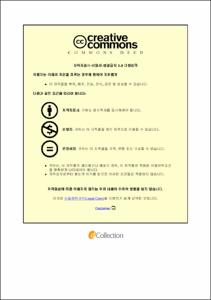Effects of Dietary Yucca Meal on Growth, Hematology, Non-specific Immune Responses and Disease Resistance in Juvenile Nile Tilapia, (Oreochromis niloticus)
- Alternative Title
- 치어기틸라피아사료내사포닌함유유카추출물의첨가가성장, 면역및질병저항성에미치는영향
- Abstract
- A 10-weeks feeding trial was conducted to determine the effects of dietary Yucca meal supplementation (YMS) on growth performance, hematology, non-specific immune responses and disease resistance in juvenile Nile tilapia, Oreochromis niloticus. Six isonitrogenous (40% crude protein) and isoenergetic (16.39 kJ available energy g-1) experimental diets were formulated to contain 0% (YMS0), 0.1% (YMS0.1), 0.3% (YMS0.3), 0.5% (YMS0.5), 1% (YMS1.0) and 2% (YMS2.0) dietary Yucca meal on a dry-weight basis. A diet without Yucca meal supplementation (YMS0) was used as the control diet.
At the end of the 10 weeks feeding trial; weight gain (WG) of fish fed on diet YS0.1 was significantly higher than those of fish fed on YMS0.5, YMS1.0 and YMS2.0 diets (P<0.05). Specific growth rate (SGR) of fish fed on diet YMS0.1 was significantly higher than that of fish fed on YMS0.5, YMS1.0 and YMS2.0 diets. Feed efficiency (FE) of fish fed on diet YMS0.1 was significantly higher than that of fish fed on YMS0, YMS0.5, YMS1.0 and YMS2.0 diets. There was no significant difference in protein efficiency ratio and survival across all the treatment groups. Fish fed on diet YMS0.1 had significantly higher whole body protein content than did fish fed on diets YMS0, YMS1.0 and YMS2.0 diets. Whole body ash content increased significantly with increasing Yucca meal levels. There was no significant difference in whole body lipid and moisture content across all the treatment groups.
Glutamic oxaloacetic transaminase (GOT) levels were significantly higher in fish fed on YMS0.1, YMS0.3 and YMS1.0 diets than those of fish fed on YMS0 and YMS2.0 diets (P<0.05). Glutamic pyruvic transaminase (GPT) levels in fish fed on the control diet (YMS0) were significantly lower than those of fish fed on all the other experimental diets. There was no significant difference in glucose and total protein levels across all the treatment groups.
Lysozyme activity of fish fed on YMS0.1 was significantly higher than that of fish fed on YMS0, YMS0.5 and YMS1.0 diets (P<0.05). Nitro blue tetrazolium (NBT) absorbance’s of fish fed on YMS0.1, YMS0.3 and YMS0.5 were significantly higher than those of fish fed on diet YMS2.0. After the 14 days of the challenge test, cumulative survival rates of fish fed on diet YMS0.1 were significantly higher than those of fish fed on YMS0, YMS1.0 and YMS2.0 diets.
In conclusion, dietary Yucca meal improved growth, promoted non-specific immune responses and enhanced disease resistance against A. hydrophila bacterial challenge in juvenile Nile tilapia. In the current study, the best results were obtained at Yucca meal inclusion level of 0.1 % (23.9 mg kg-1 saponin) in the diet YMS0.
- Issued Date
- 2016
- Awarded Date
- 2016. 2
- Type
- Dissertation
- Publisher
- 부경대학교 글로벌수산대학원
- Affiliation
- 부경대학교 글로벌수산대학원
- Department
- 글로벌수산대학원 국제수산과학협동과정
- Advisor
- 배승철
- Table Of Contents
- Table of Contents i
List of Tables ii
List of Figures iii
Abstract v
I. Introduction 1
II. Materials and methods 12
a. Experimental diets 12
b. Experimental fish and feeding trial 13
c. Sample collection and analysis 16
d. Bacterial challenge test 20
e. Statistical analysis 20
III. Results 22
IV. Discussion and conclusion 53
Acknowledgment 61
References 62
- Degree
- Master
- Appears in Collections:
- 글로벌수산대학원 > 국제수산과학협동과정
- Files in This Item:
-
-
Download
 Effects of Dietary Yucca Meal on Growth, Hematology, Non-specific Immune Responses and Disease Resis.pdf
기타 데이터 / 671.34 kB / Adobe PDF
Effects of Dietary Yucca Meal on Growth, Hematology, Non-specific Immune Responses and Disease Resis.pdf
기타 데이터 / 671.34 kB / Adobe PDF
-
Items in Repository are protected by copyright, with all rights reserved, unless otherwise indicated.